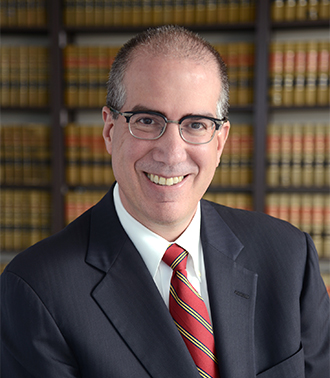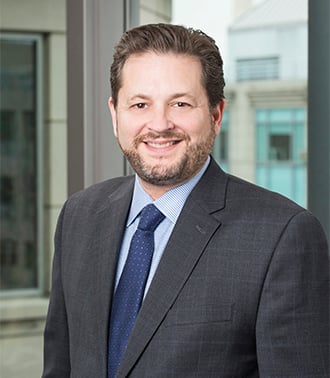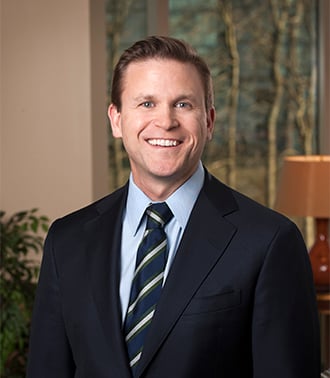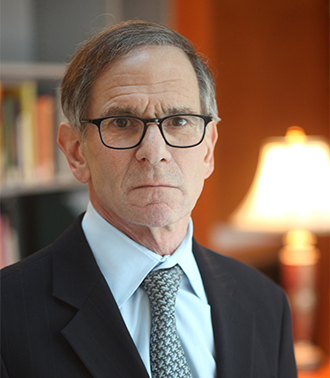Supreme Court Clarifies Liability for Statements of Opinion Under Section 11 of the Securities Act
On March 24, 2015, the US Supreme Court decided Omnicare, Inc. v. Laborers District Council Construction Industry Pension Fund,1 resolving a split among the Courts of Appeal regarding when statements of opinion made by issuers of securities in registration statements are actionable in private litigation under Section 11 of the Securities Act of 1933.2 The Court held that a statement of opinion can be actionable only if the maker of the statement did not actually hold the stated opinion, the stated opinion includes an underlying material fact that is not true, or the maker of the statement omitted a material fact that resulted in the statement being misleading to a reasonable investor.
Background and Procedural History
In connection with a December 2005 public offering of common stock, Omnicare, "the nation's largest provider of pharmacy services for residents of nursing homes," filed a registration statement with the Securities and Exchange Commission. The registration statement included statements that Omnicare "believe[d] our contract arrangements with other healthcare providers, our pharmaceutical suppliers and our pharmacy practices are in compliance with applicable federal and state laws" and "believe[d] that our contracts with pharmaceutical manufacturers are legally and economically valid arrangements that bring value to the healthcare system and the patients we serve."
After the federal government charged Omnicare with violating anti-kickback laws by receiving payments from drug manufacturers, pension funds that purchased Omnicare stock in the public offering brought suit alleging that Omnicare violated Section 11, which imposes strict liability on issuers for (i) including in a registration statement "an untrue statement of material fact" or (ii) omitting from a registration statement a material fact "necessary to make the statements therein not misleading."
The district court concluded that statements of opinion "regarding a company's belief as to its legal compliance are considered 'soft' information and are generally not actionable," and held that the funds' allegations did not supply a sufficient factual basis to conclude that the defendants (Omnicare and its officers and directors who signed the registration statement) knew the statements were untrue when they made them.3 The Sixth Circuit reversed, concluding that "[u]nder § 11, . . . if the defendant discloses information that includes a material misstatement, that is sufficient and a complaint may survive a motion to dismiss without pleading knowledge of falsity."4 The Supreme Court granted certiorari in order to consider Section 11's application to statements of opinion.
The Court's Decision
In an opinion written by Justice Kagan and joined by six other Justices, the Court reversed. The Court first addressed Section 11 liability based on "an untrue statement of material fact," rejecting the funds' argument that liability attaches for statements of sincerely-held opinions that turn out to be incorrect. As the Court explained, "a sincere statement of pure opinion is not an 'untrue statement of material fact,' regardless whether an investor can ultimately prove the belief wrong." The Court concluded that a statement of opinion does not constitute "an untrue statement of material fact" unless (i) the maker of the statement does not have the subjective belief he espouses or (ii) the opinion contains embedded facts that are untrue.5 Because the funds disclaimed any allegation of fraud (i.e., they were not alleging that Omnicare did not sincerely hold its expressed belief regarding its legal compliance) and the statements at issue were ones of "pure opinion" and did not contain "embedded statements of fact," the Court held that there was no liability under the "false-statement provision" of Section 11.
As for Section 11 liability for statements of opinion that omit material facts "necessary to make the statements therein not misleading," the Court adopted an objective "reasonable investor" approach. While acknowledging that an issuer's "statement of opinion is not misleading just because external facts show the opinion to be incorrect," the Court reasoned that a reasonable investor would expect such a statement to "fairly align with the information in the issuer's possession at the time." Accordingly, the Court held, "if a registration statement omits material facts about the issuer's inquiry into or knowledge concerning a statement of opinion, and if those facts conflict with what a reasonable investor would take from the statement itself, then § 11's omissions clause creates liability."
Drawing upon the common law of misrepresentation and the purpose of Section 11, the Court provided several general principles to guide this analysis:
· A statement of opinion "is not necessarily misleading when an issuer knows, but fails to disclose, some fact cutting the other way." This is because "[r]easonable investors understand that opinions sometimes rest on a weighing of competing facts." Thus, "[a] reasonable investor does not expect that every fact known to an issuer supports its opinion statement."
· The "specificity of an opinion statement" generally will be considered by a reasonable investor "in making inferences about its basis," with the reasonable investor typically expecting that "a more detailed investigation lay behind" a more specific statement.
· "[W]hether an omission makes an expression of opinion misleading always depends on context." As a result, a statement of opinion must be read "in light of all its surrounding text, including hedges, disclaimers, and apparently conflicting information" (and, thus, "an omission that renders misleading a statement of opinion in a vacuum may not do so once that statement is considered, as is appropriate, in a broader frame").
· An issuer does not have a "general disclosure requirement" to reveal its basis for an opinion. The Court also noted, however, that under the common law "the expression of an opinion may carry with it an implied assertion, not only that the speaker knows no facts which would preclude such an opinion, but that he does know facts which justify it."
· An investor bringing an action under Section 11 must "identify particular (and material) facts going to the basis for the issuer's opinion-facts about the inquiry the issuer did or did not conduct or the knowledge it did or did not have-whose omission makes the opinion statement at issue misleading to a reasonable person reading the statement fairly and in context."6
· "[T]o avoid exposure for omissions under § 11, an issuer need only divulge an opinion's basis, or else make clear the real tentativeness of its belief."
Because the lower courts failed to consider whether Omnicare's statements of opinion omitted material facts in light of the correct legal standard, the Court vacated the judgment below and remanded the case.
Justice Scalia wrote an opinion concurring in part and concurring in the judgment. While Justice Scalia agreed with the Court's analysis of whether the statements of opinion at issue constituted untrue statements of material fact, he disagreed with the Court's objective standard for evaluating whether omissions may make an opinion statement misleading, asserting that the Court's standard was too "expansive." Rather, Justice Scalia focused on the common-law requirements for misrepresentation and their focus on the speaker's reasonable basis for an opinion, explaining, "[w]hen an expert expresses an opinion instead of stating a fact, it implies (1) that he genuinely believes the opinion, (2) that he believes his basis for the opinion is sufficient, and (most important) (3) that he is not certain of his result. Nothing more." Justice Scalia went on to state that "[t]his approach would have given lower courts and investors far more guidance and would largely have avoided the Funds' attack upon Omnicare's opinions as though Omnicare held those opinions out to be facts."
Justice Thomas also wrote a separate opinion. He concurred in the judgment that the statements of opinions at issue were not untrue statements of material fact, but in his view the Court should not have addressed Section 11's "omission" standard because that theory of liability was not pursued by the funds in either the district court or the Sixth Circuit (and thus was not properly before the Court).
Significance
While Omnicare involved filings made under the Securities Act of 1933 (registration statements), its reasoning may be instructive for other types of filings - whether statements are materially misleading or omit material facts is a common element of many other claims under the federal securities laws, including those that govern periodic filings. As the Court wrote, "These principles are not unique to § 11: They inhere, too, in much common law respecting the tort of misrepresentation."
An issuer's statement of opinion will not result in liability solely on the basis that the opinion turned out to be incorrect. Nor, however, are issuers immunized from potential liability because statements are couched as opinions rather than facts. As the Court indicated, there are no "magic words" such as "we believe" or "we think" that will foreclose liability in all circumstances.
The Court emphasized that the evaluation of particular disclosures "always depends on context." Accordingly, predicting how lower courts will apply the Court's standard to particular disclosures may be difficult. This may be especially true with respect to statements of opinion of the type at issue in Omnicare - i.e., opinions regarding legal compliance - made by companies that could face allegations under anti-kickback laws (such as pharmaceutical or medical device companies) or other laws that are ambiguous as to the lines between lawful and unlawful conduct (such as the Foreign Corrupt Practices Act). It remains to be seen how lower courts will apply Omnicare, especially in the context of statements of opinion about compliance with complex regulatory statutory schemes where the lines are blurred.
-
No. 13-435, 575 U.S. ___ (2015). The Court's decision is available here.
-
-
Ind. State Dist. Council of Laborers & HOD Carriers Pension & Welfare Fund v. Omnicare, Inc., No. 2006-26, 2012 WL 462551, at *4 (E.D. Ky. Feb. 13, 2012).
-
719 F.3d 498, 505 (6th Cir. 2013).
-
In either case, of course, the plaintiff must also allege materiality.
-
Citing precedent on general pleading standards, Ashcroft v. Iqbal, 556 U.S. 662, 678 (2009), the Court noted that this is "no small task for an investor."










